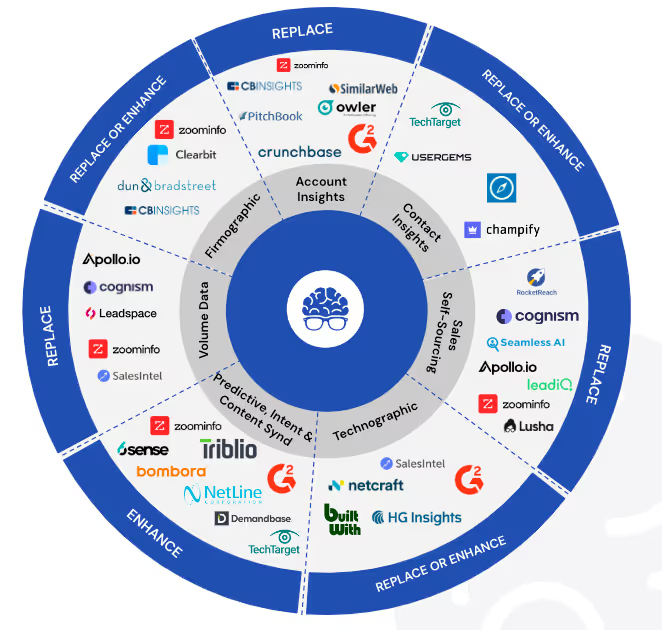As a sales or marketing leader, you know all too well the critical importance of accurate and comprehensive contact data and market intelligence. However, when it comes to Small and Medium-sized Businesses (SMBs), gathering this information often feels like an uphill battle. The frustration of dealing with fragmented data sources, the limited digital footprints of many SMBs, and the ever-changing nature of these businesses can be overwhelming. You're not alone in this struggle. Many of your peers face the same hurdles daily, trying to build robust pipelines and identify growth opportunities in the vast and varied SMB landscape.
In this guide, we'll delve into the specific challenges that make acquiring SMB data so difficult and share strategies to overcome these obstacles. By understanding the unique difficulties associated with SMB data and leveraging innovative solutions, you can gain the insights needed to target this critical segment effectively and efficiently.
Why is it so Difficult?
1. Data Fragmentation
SMBs are incredibly diverse and spread across various industries and geographies. Unlike larger enterprises, their data is fragmented and scattered across multiple sources. Many SMBs don't have a strong online presence, making it difficult to gather comprehensive information from a single source.
2. Limited Digital Footprint
Many SMBs operate with minimal digital presence, sometimes just a basic website or a small social media presence. They might not engage in extensive online marketing or have detailed information available online, making it harder to scrape or gather data through conventional digital means.
3. Dynamic Nature
SMBs are often more agile and experience more frequent changes compared to larger companies. They might change ownership, locations, or business models more often. Keeping data current and accurate requires constant updates and monitoring.
4. Varied and Inconsistent Data Sources
Information about SMBs can come from a variety of sources, such as local business directories, industry associations, trade publications, and social media platforms. However, the data from these sources is often inconsistent in format, quality, and completeness, complicating efforts to aggregate and standardize it.
5. Privacy Concerns
There are stringent regulations regarding the collection and use of personal data, especially for smaller businesses that may not have the same public disclosures as larger corporations. Ensuring compliance with data protection laws like GDPR and CCPA adds an extra layer of complexity to data collection efforts.
6. Resource Constraints
Many SMBs do not invest heavily in marketing or customer relationship management (CRM) systems, leading to a lack of available data. Even when data exists, it might not be easily accessible or well-maintained, requiring significant effort to extract and verify.
7. High Turnover Rate
The failure rate of SMBs is relatively high, with many going out of business within a few years. This high turnover rate means that data on SMBs can quickly become outdated, necessitating continuous effort to keep the data current.
Solutions and Approaches
Despite these challenges, there are strategies to overcome these hurdles:
- Custom Data Solutions: Leveraging bespoke data services that use advanced scraping, AI, and machine learning techniques to gather and maintain data on SMBs from a multitude of sources.
- Local and Niche Directories: Utilizing specialized directories and local business listings can provide more targeted and up-to-date information.
- Partnerships and Collaborations: Forming partnerships with industry associations, chambers of commerce, and local business groups can help access more reliable data.
- Regular Updates and Verification: Implementing systems for regular data updates and verification processes ensures the data remains accurate and relevant such as LeadGenius.
- Advanced Analytics: Using predictive analytics and signal-based data to identify and track changes in SMBs can help maintain an accurate database.
For marketing and sales teams, having accurate and comprehensive data on SMBs is essential but challenging. By understanding the unique difficulties associated with SMB data and leveraging innovative solutions and strategies, businesses can gain the insights they need to target this important segment effectively.
At LeadGenius, we specialize in providing bespoke data and custom insights tailored to your specific needs. Our approach goes beyond what pre-built data lakes can offer, helping you unlock new opportunities and insights in the SMB market. If you're looking to elevate your data game, let's explore how we can support your growth.




